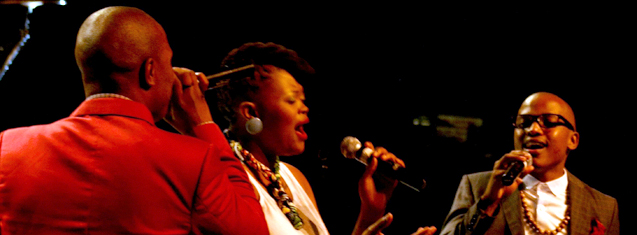
The Kovsie Extravaganza is an annual highlight on our university’s Arts and Culture calendar. The event offers outstanding Kovsie artists the opportunity to showcase their talent in music, dance and poetry – to name but a few – live on stage. The Sand d u Plessis theatre in Bloemfontein was packed to capacity for this highly-anticipated performance on 27 September 2014.
With the multi-award winning a cappella trio, The Soil, and Kovsie Idol Delia Moumakwe included in the line-up, tickets were already sold out nine hours before the show.
But the Kovsie acts by no means paled in comparison to these stars. In addition, the Free State Youth Orchestra – which includes some of the most talented students at our Odeion School of Music – provided an inspired performance.
This full production had the crowd dancing, cheering and clapping throughout the ecvent. The size and reaction of the audience was firm proof of the Kovsie Extravaganza’s growing popularity.
Speaking to Ntsika Ngxanga, a member of The Soil, he said that they were truly blessed to have made it this far in the music industry. Growing up in Soweto in difficult circumstances, the trio is now performing on stages across the globe. “We thank the UFS for their support towards the extravaganza. We definitely wish the student community all the best with their studies. Education is important,” Ngxanga said.